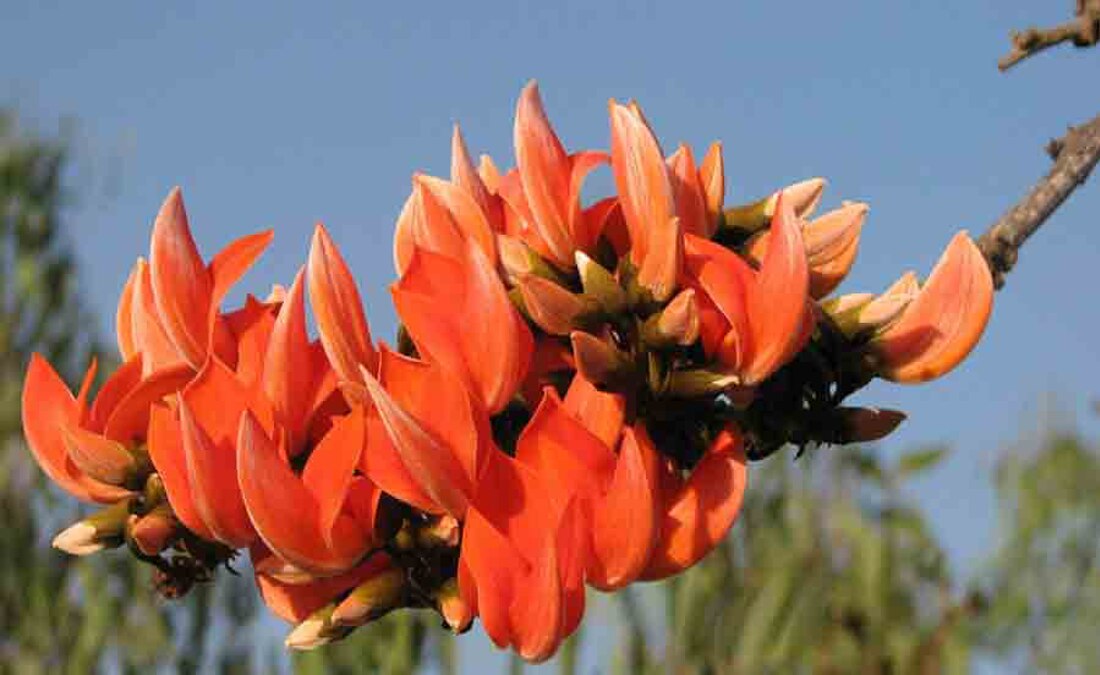Top Qs
Timeline
Chat
Perspective
Butea
Genus of legumes From Wikipedia, the free encyclopedia
Remove ads
Butea is a genus of flowering plants belonging to the pea family, Fabaceae. It includes five species native to the Indian Subcontinent, Indochina, Tibet, and southern China.[1] It is sometimes considered to have only two species, B. monosperma and B. superba,[2] or is expanded to include four or five.[3]

Butea monosperma is used for timber, resin, fodder, herbal medicine, and dyeing.
Butea[clarification needed] is also a host to the lac insect, which produces natural lacquer.[4]
Remove ads
Taxonomy
Butea is named after John Stuart, 3rd Earl of Bute (1713-1792), member of parliament, prime minister for one year, and a patron of botany.[5] William Roxburgh erected the genus Butea in 1795, but it became a nomen invalidum. Carl Willdenow validated the name Butea in 1802.
Uses
Butea monosperma, called kiṃśukha in Sanskrit, is used in Ayurvedic medicine to treat various symptoms.[6]
Species
Forty-two names have been published in Butea,[7] but forty of these are either synonyms or names of species that have been transferred to other genera.[4] Five species are currently accepted.[1]
- Butea buteiformis (Voigt) Grierson (syn. Megalotropis buteiformis, Meizotropis buteiformis) – Himalayas, India, Myanmar, and northern Thailand
- Butea monosperma (Lam.) Kuntze (syn. Butea frondosa, Erythrina monosperma) – flame-of-the-forest, bastard teak, pâlāsh – Indian subcontinent, Indochina, and southern China
- Butea pellita Hook.f. ex Prain – west-central and central Himalayas
- Butea superba Roxb. ex Willd. (syn. Plaso superba, Rudolphia superba) – India, Bangladesh, and Indochina
- Butea xizangensis X.Y.Zhu & Y.F.Du – Tibet
References
External links
Wikiwand - on
Seamless Wikipedia browsing. On steroids.
Remove ads

